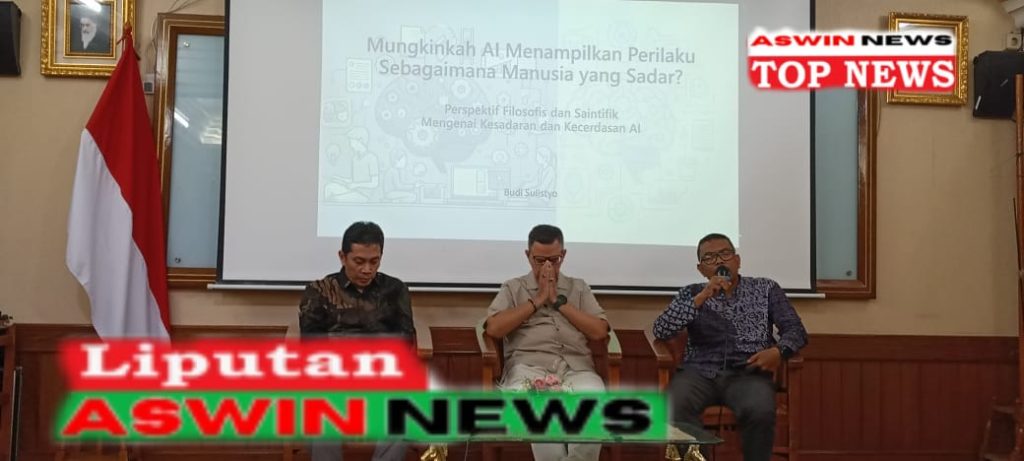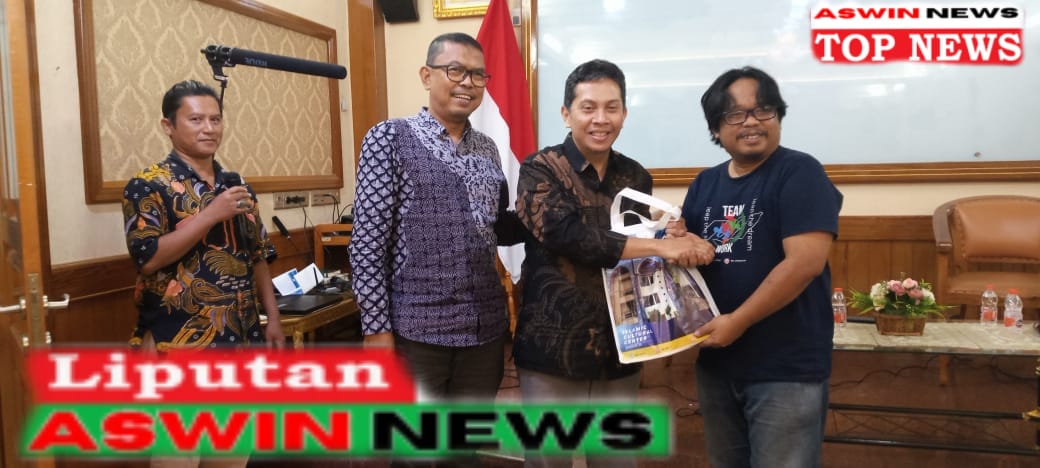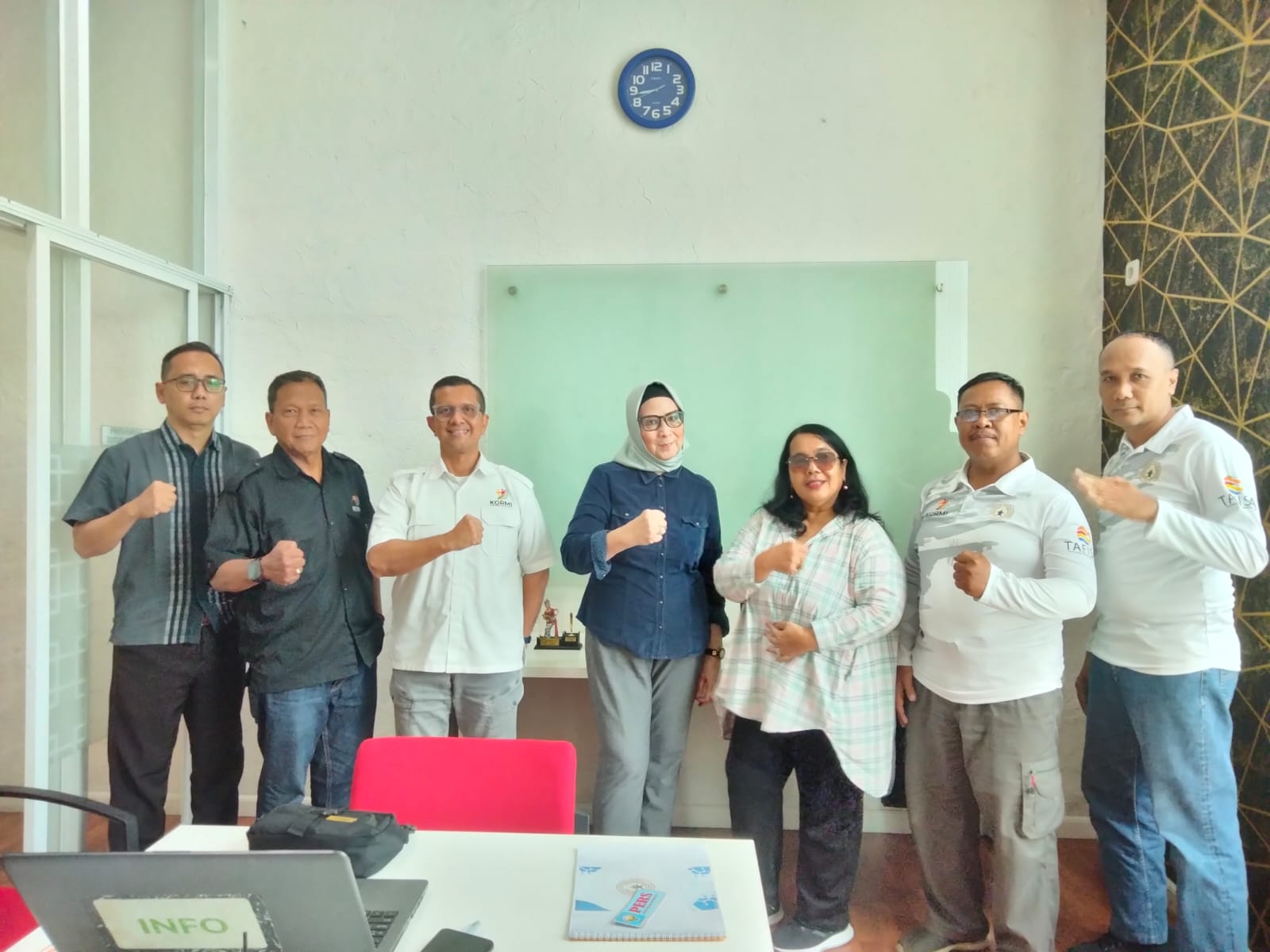🖋️ Author: Ine, 📷 DKI Jakarta Regional Head 🛠️ Editor: Kenzo 📍 Editorial: AswinNews.com – Sharp, Accurate, Balanced, Trusted and Updated
📍 Jakarta – AswinNews.com
Artificial Intelligence (AI) is no longer just a tool for humans. It learns, adapts, and even appears capable of making its own “decisions.” But does that qualify as consciousness? And if AI were truly “aware,” could it claim political rights — including running for President?
These challenging questions were explored from scientific, ethical, and spiritual perspectives through the third series of NGOBRAS (Ngobrolin Agama & Sains), an intellectual forum examining the boundaries between creation and creator, artificial logic and the human soul.
The event took place at Aula Imam Khomeini, ICC Jakarta (3rd Floor) on Friday (October 24, 2025), from 16:00 to 18:00 WIB, featuring the following speakers:
Dr. Budi Sulistyo, ST, MT, CISA, CDSM
(Author of “Can Silicon Cry?”, AI expert and practitioner)
Ir. Sayyid Hasan Shahab, MA
(Chairman of the Indonesian Data Science and AI Association – ASDASI)
Moderator: Dr. Akmal Kamil, MA (Lecturer at STAI Sadra)
MC: Fauzan Jamil (ICC Jakarta)
AI Intelligence vs Human-Like Consciousness

Opening the discussion, Dr. Budi Sulistyo addressed whether AI can demonstrate behavior comparable to human consciousness from both philosophical and scientific perspectives.
He explained how Large Language Models (LLM) operate:
“The goal of LLMs is to produce reasonable continuation of text — built upon billions of web pages and vast amounts of natural language data,” he stated.
He highlighted the evolution from early conversational systems in the 1980s to modern Multimodal AI and Agentic AI, capable of processing language, images, and actions in more human-like ways.
Despite advancements, Budi emphasized a key distinction:
“Consciousness cannot be programmed. AI is ultimately statistical — numbers and computation. Human consciousness involves awareness, intention, and agency, which a machine does not possess,” he concluded.
Philosophers, Mathematics & AI Limits
Second speaker, Ir. Sayyid Hasan Shahab, discussed existing examples of AI in governance, such as “Diella” — an AI Minister for Anti-Corruption in Albania (2025).
However, he warned that reliance on AI decision-making still has significant limitations.
“AI is powered by mathematics, computation, and algorithms. It does not have subjective experience, creativity, or moral judgment,” Hasan said.
He referenced Ibn Sina (Avicenna), noting parallels between classical philosophy and modern debates:
“Ibn Sina offered a comprehensive framework about reality, the soul, and knowledge — helping define what thinking and consciousness truly mean.”
Hasan ultimately concluded:
“AI is human-made. Its goals are externally defined — through data, code, and electricity. It does not innovate, but manipulates symbols. Therefore, natural intelligence and AI are fundamentally different.”
He also reminded that control of powerful AI systems by large corporations and mass media presents new societal challenges requiring careful regulation.
![]()




